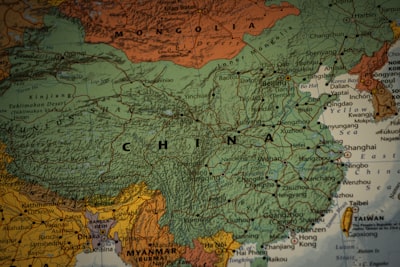Summary:
In a candid meeting with the EU’s top diplomat, Kaja Kallas, Chinese Foreign Minister Wang Yi revealed that Beijing cannot afford Russia’s defeat in Ukraine, citing fears that the U.S. would then refocus its strategic attention on confronting China. While Wang denied China’s direct material support for Russia, he delivered a series of pointed historical and geopolitical lectures, underscoring Beijing’s anxieties about Washington’s long-term ambitions. This exchange provides unusual insight into China’s true strategic priorities—ones that often diverge sharply from official public messaging.
Analysis:
The frankness of Wang Yi’s comments highlights several notable dynamics. First, it strips away the ambiguity that often clouds China’s stance on the war in Ukraine. Publicly, China claims neutrality; privately, geopolitical calculations drive its reluctance to see Moscow defeated. This is rooted not only in Sino-Russian partnership but in a deep-seated worry that a weakened Russia would allow Washington to marshal more attention and resources toward containing China in East Asia, especially over contentious issues like Taiwan and the South China Sea.
The comments also reveal a notable exercise in realpolitik: China’s interests in Ukraine are filtered through the prism of its rivalry with the United States, rather than humanitarian concerns or loyalty to Russia. By rejecting the accusation of direct material support, Wang implicitly acknowledges China’s limits—but also its capacity to influence the conflict if it chose. This balancing act, combined with historical “lessons” delivered to the EU, suggests Beijing sees itself as a peer to major Western powers with unique, self-interested logic shaping its policies.
Discussion:
Why does this matter? At a time when the world faces a volatile mix of regional wars and a contested global order, clarity about the true motivations of major powers is crucial. China’s behind-the-scenes stance complicates efforts to diplomatically isolate Russia or pressure Beijing into a more neutral or peace-brokering role. It also underscores Eurasia’s shifting fault lines: rather than a Eurasia united against the West, China is maneuvering primarily for its own security within a newly multipolar world.
This dynamic is not unique to China. Throughout history, great powers have often been less motivated by ideology or principle than by relative advantage. Beijing’s candidness may be unusual, but it’s likely mirrored in private conversations among other leaders. For policymakers and analysts, the incident should invite reflection. How do private declarations and strategic interests diverge from public statements? How does this shape the prospects for peace or escalation?
Moreover, the episode raises further questions: If U.S. and EU policymakers know that Chinese neutrality is performative, how should engagement shift? What room, if any, exists for Beijing to play a constructive role, or will it remain a bystander prioritizing its own calculus? Ultimately, China’s position on Ukraine cannot be separated from its global ambitions—and neither can the prospects for lasting peace in Europe.

Comments
No comments yet. Be the first to comment!